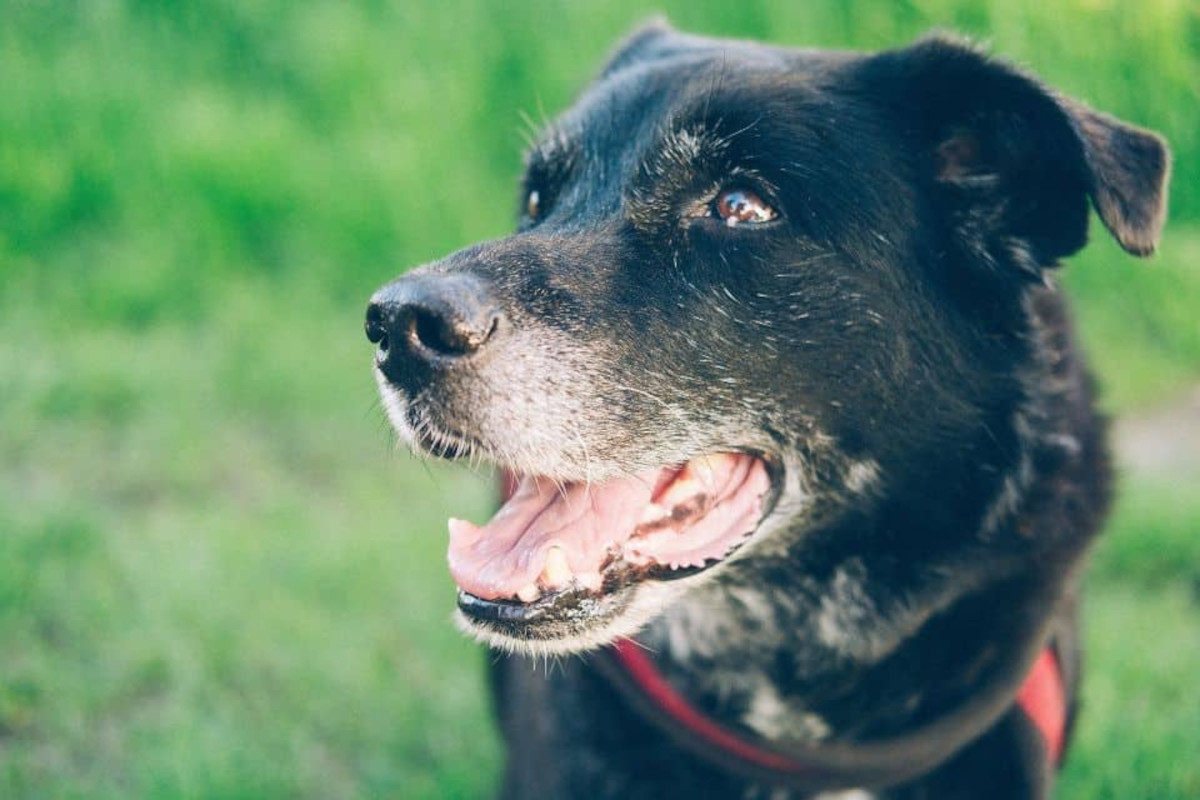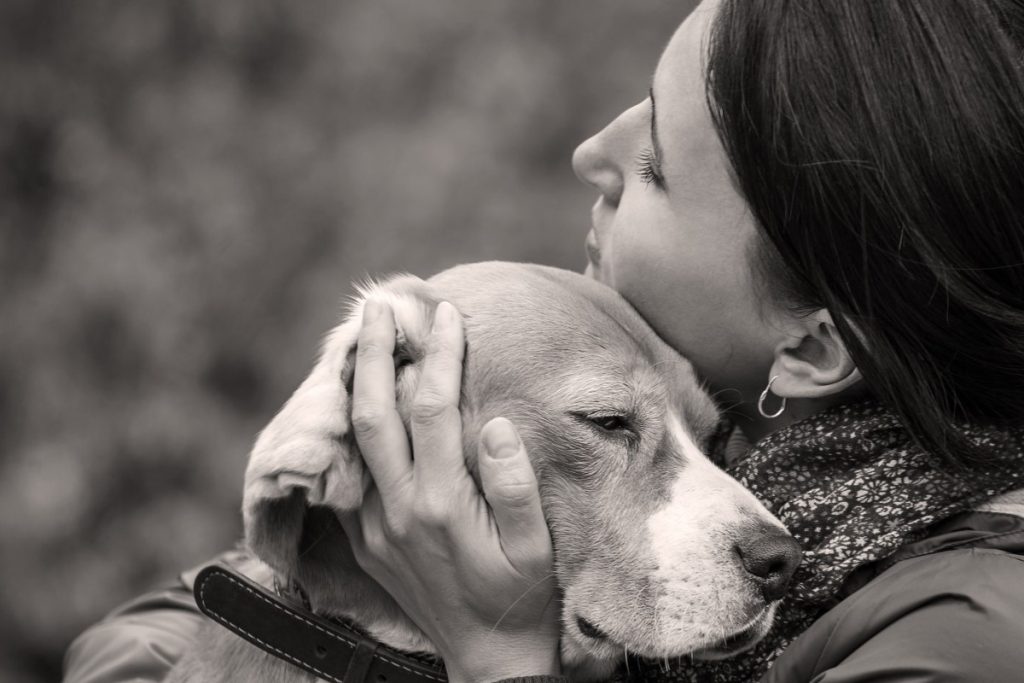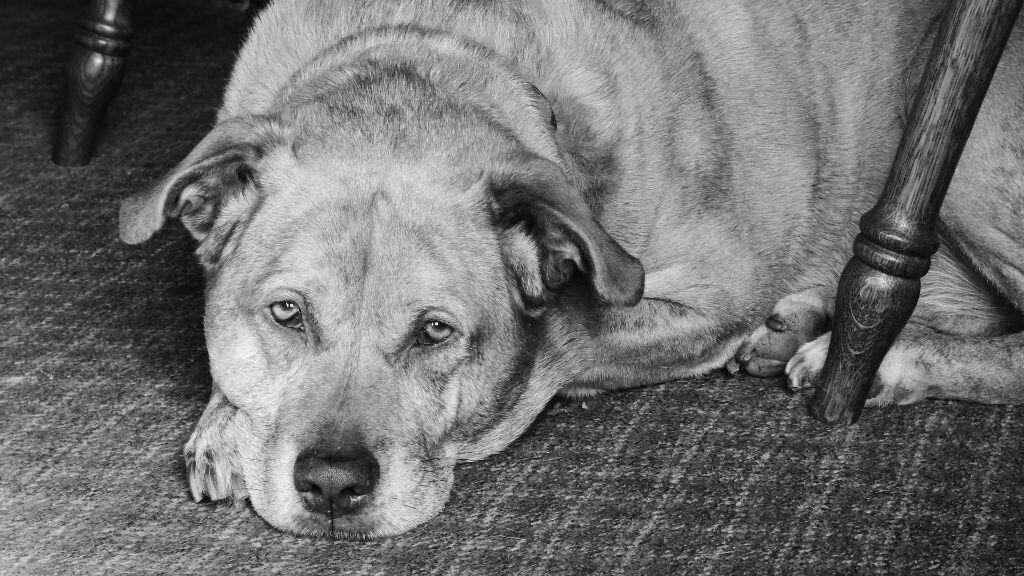
Grieving dog Symptoms – Helping Your Dog Cope with the Loss of Another Pet
August 19, 2019


Should You Have Pet Euthanasia at Home?
September 15, 2019

Congestive heart failure is a common condition in older dogs. It can progress slowly, and affect both sides of your dog’s heart. Learn more about dog heart failure and when dog euthanasia may be the best choice to make.
What Is Canine Congestive Heart Failure?
Congestive Heart Failure in dogs, often referred to as CHF, is when your dog’s heart cannot pump blood around its body. Blood then builds up in the lungs causing fluid in your dog’s chest or abdomen. This fluid has a compounding effect on the heart as less oxygen is flowing through its body.
Canine Congestive Heart Failure presents in two forms:
- Right-Sided CHF: This type of canine CHF when blood leaks into your dog’s right atrium. The result is that circulation gets congested with blood and fluid builds in the abdomen, restricting organ function.
- Left-Sided CHF: This form is the more common of the two. With this type of CHF, the fluid causes pulmonary edema (swelling), resulting in breathing difficulty and coughing.
Congestive Heart Failure Facts
Each contraction of the heart muscle pumps blood around the body – giving organs oxygen and energy, and removing waste products.
As heart valves age, blood can leak backwards and with each heartbeat, there will be a heart murmur. With deteriorating heart function, the fluid volume within the heart increases – resulting in the heart chambers stretching and hydrostatic pressure in vessels that supply the veins.
This causes congestion and pulmonary oedema known as left-sided heart failure. Or ascites without pleural effusion – right-sided heart failure. Generally, dogs with heart enlargement are at greater risk of heart failure.
What Are The Symptoms of Canine Congestive Heart Failure?
When your dog has CHF, you can identify it through the following symptoms:
- Breathing difficulty
- Bluish gums
- Collapsing
- Coughing
- Coughing blood
- Fatigue
- Lethargy
- Panting
- Sharp breathing
- Swollen abdomen
What Are The Causes Of Canine CHF?
Many instances of CHF are genetic, particularly in smaller breeds. The reason for this is due to smaller dogs’ heart valves wearing out quicker than larger breeds. Larger breeds are not exempt, though, and degenerated heart valves generally cause CHF for bigger dogs. Dogs with weaker hearts can also cause CHF.


Congestive Heart Failure Diagnosis
Your vet will gather information about your dog’s medical history to determine whether it supports heart disease or heart failure. Or if congenital or acquired heart disease is more likely. Findings from the history will help combined with results of the physical examination.
Biochemistry monitoring will ensure that the lowest effective doses of drugs get administered.
Heart Murmur Data
There are three types of heart murmur – systolic, diastolic, and continuous. Systolic murmurs take place when the heart is contracting, caused by narrowing blood vessels obstructing blood flow. Diastolic murmurs occur in between beats – leaks from the aortic valve cause this and it’s very rare.
Continuous murmurs take place throughout the heartbeat cycle possibly due to congenital heart disease. Dog heart murmur life expectancy, in this case, can be up to two years.
How long can a dog live with a heart murmur? You can be trained to regularly monitor your dog to help live the longest and best life. Maintaining a healthy weight, having regular dental cleanings, and providing a high-quality diet with increased omega-3 essential fatty acids are all a proactive way of keeping your dog healthy for many years.
Treatments for Chronic Heart Failure (CHF)
The goal of any treatment is to reduce the amount of fluid surrounding the heart – letting it function properly pumping blood to lungs and other vital organs.
Treating CHF with Oxygen
For shortness of breath or other breathing issues, your vet may give your dog oxygen to help get them back into standard breathing patterns. The vet may be able to do this at home, or they may have to go to a hospital. Your dog is likely to need medications on a long-term basis to manage the condition.
Ongoing Management of CHF
Besides having a programme of medications to follow, you will need to manage the condition in other ways. For instance, your pet is likely to need a low-sodium diet. It will also need one that includes all the vitamins and minerals that your dog needs.
Of course, you will need to ensure that you keep getting your dog checked-up by the vet. Also, it would be best if you kept a watch out for complications to other organs such as the kidneys and lungs.
You need to provide a stress-free environment for your pet. You can give your pet a moderate amount of exercise, but be careful not to overdo things.


Recommendations for Quality of Life
You’ll be given advice on how to monitor your dog’s heart disease at home. This may include recording resting and sleeping breath rates. The normal heart rate for dogs is a resting rate of less than 35 breaths per minute – commonly mid-teens to mid-twenties. An elevated breathing rate repeated within the hour of more than 40 breaths a minute needs attention from your vet.
With timely treatments and therapy, most dogs with congestive heart failure can still have a good quality of life.
Prognosis for CHF
Sadly, CHF has no cure, so ongoing treatment and management of the condition are all you can do to give your pet quality of life. With recent veterinarian advances, your dog will have a chance to extend its life from anything between a few months to years.Identifying the condition early and getting your dog treated as soon as possible is critical if you are to extend your dog’s life.
Saying Goodbye
This is a difficult process to go through, particularly when dog euthanasia is the choice you’ve made. We can provide you with some help with our Quality of Life Checklist. This will help you to understand some of the things going on with your dog and what to be aware of as their condition worsens.
You may feel that you do not want to make your dog go through with the initial treatment and ongoing medical care. In this case, you might consider that putting your dog to sleep is in the best interests of your pet to avoid any suffering. If you do make this difficult decision, you’ll receive all the help and support you need during this traumatic time from highly trained, fully qualified, and caring professionals.
Cloud 9 vets specialise in professional and respectful dog euthanasia in your own home. We can help you prepare for this and, when it comes to the time, we can take care of every aspect of your pet’s final care.
If you need some help, assistance or advice on this, please give us a call today.




